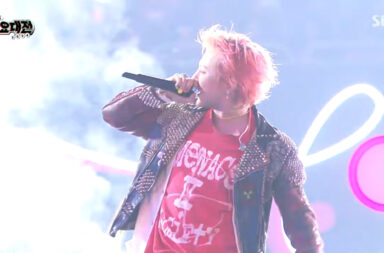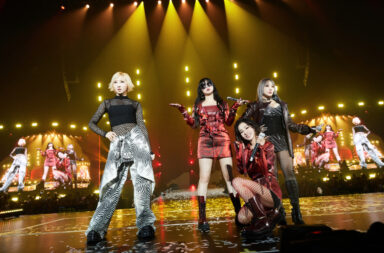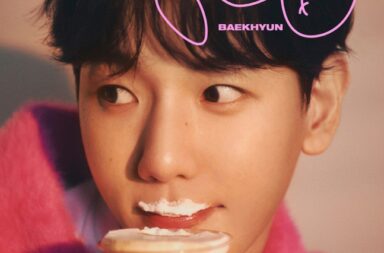 As an ELF (and more broadly as a fan of K-pop) it constantly surprises me just how much criticism Super Junior cops for its failure to evolve musically following their success with “Sorry Sorry” — so much so that a comeback isn’t complete until its similarities to their 2009 hit have been thoroughly discussed, spurned and the entire venture dismissed. But is this kind of relentless criticism fair to groups that have little to no control over their image? Even then, should any group come under fire for capitalising upon their greatest success?
As an ELF (and more broadly as a fan of K-pop) it constantly surprises me just how much criticism Super Junior cops for its failure to evolve musically following their success with “Sorry Sorry” — so much so that a comeback isn’t complete until its similarities to their 2009 hit have been thoroughly discussed, spurned and the entire venture dismissed. But is this kind of relentless criticism fair to groups that have little to no control over their image? Even then, should any group come under fire for capitalising upon their greatest success?
The song that singlehandedly accelerates one to super stardom is what every K-pop group seeks. And every group, no matter the agency, rides that success like there’s no tomorrow. To be sure, tomorrow is a very uncertain thing for most groups, yet the failure to demonstrate musical evolution is a crime many of the more discerning members of the K-pop community regard as inexcusable. An unexpected qualm perhaps, given K-pop’s infamously synthetic nature. Yet considered in light of the emphasis Korean idoldom places on raw entertainment, and the fact that a stagnant sound is inherently boring, it makes sense.
While by no means easy, he visual evolution of a group is still a simpler and more natural process than its musical equivalent. Musical trends are a much more elusive phenomenon, and are therefore much harder to capitalise upon successfully without losing oneself amongst the competition. I personally can’t blame a group for sticking with a concept they know is successful because it means they’ve actually found the right dynamic. And given the elusive nature of this successful formula, I find it unsurprising that so few groups (or more importantly, their agencies) are willing to relinquish it.
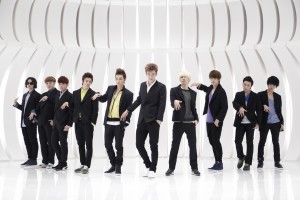 With each promotional cycle calling for a new and improved concept, it only makes sense that the occasional comeback falls short of expectation. Working with a proven formula is one way of minimising possible losses. Changing up a group’s visual presence gives an impression of overall growth thus helping to combat an otherwise unchanging sound. This is true of most idol groups, some more than others, although this is not without reason.
With each promotional cycle calling for a new and improved concept, it only makes sense that the occasional comeback falls short of expectation. Working with a proven formula is one way of minimising possible losses. Changing up a group’s visual presence gives an impression of overall growth thus helping to combat an otherwise unchanging sound. This is true of most idol groups, some more than others, although this is not without reason.
Super Junior was never a musical group. Since their inception they have been marketed as an experimental group which then developed a variety focus following their unexpected popularity with fans. That is to say their personalities and group dynamic, rather than their musical finesse, has been the driving force behind their phenomenal album sales. It seems to be this lack of correlation between any pretence at musical integrity and significant success that is so grating on the nerves of non-ELFs.
I see no similarity between “Sorry Sorry” and Super Junior’s later releases besides a steadily increasing reliance on electronic sounds. But this can be said of all K-pop and in any case, Super Junior is definitely not the worst offender.
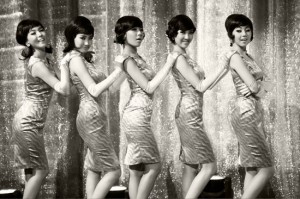 Take the Wonder Girls, who are still promoting “Nobody.” While “Nobody” is undoubtedly one of K-pop’s great songs and confirmed the Wonder Girls as one of Korea’s most successful and beloved idol groups, it has also been the subject of countless promotions and stylistic re-hashings. 2012’s Wonder Party seemed to spark a glimmer of hope among K-pop fans that the Wonder Girls had finally moved beyond their increasingly gimmicky retro vibe. The release of a Japanese “Nobody” (now for everybody) cut these hopes almost comically short. Theirs is unusual case though, and even I draw the line at promoting the same actual song ad nauseum.
Take the Wonder Girls, who are still promoting “Nobody.” While “Nobody” is undoubtedly one of K-pop’s great songs and confirmed the Wonder Girls as one of Korea’s most successful and beloved idol groups, it has also been the subject of countless promotions and stylistic re-hashings. 2012’s Wonder Party seemed to spark a glimmer of hope among K-pop fans that the Wonder Girls had finally moved beyond their increasingly gimmicky retro vibe. The release of a Japanese “Nobody” (now for everybody) cut these hopes almost comically short. Theirs is unusual case though, and even I draw the line at promoting the same actual song ad nauseum.
Perhaps the most crucial factor here is at what stage in their career a group finds popularity and how their agency reacts. I, for example, predict that NU’EST will exhibit little to no growth throughout their career. They have a winning formula that has earned them thousands of die-hard fans in the space of a few months. Their image and sound are clearly defined and while it’s still too soon to say they’re not going to do anything with it, I would bet money that that will be the case. By contrast, U-KISS have demonstrated some of the most dramatic evolution, both musically and visually, of any group in K-pop yet have failed to find a sound that resonates with enough people to achieve the success they deserve.
 Of course there are examples of groups that have successfully navigated the treacherous path between stagnation and miscalculation. 2NE1 leaps to mind, with their progress from 2009 to 2012 a testament to how a group can settle on a sound and still continue to explore it fruitfully. Kara similarly perfected their provocative brand of bubble pop with “Mister” and have followed through since then with consistently energetic and fresh releases. And if BAP is any indicator then maybe we can expect more rookies with musical growth on their agenda. While it would be nice to see more groups balance the demands of both new and existing fans while simultaneously refining their sound, that’s simply not what K-pop is about. Nor for that matter is it sustainable, given K-pop’s emphasis on quantity over quality.
Of course there are examples of groups that have successfully navigated the treacherous path between stagnation and miscalculation. 2NE1 leaps to mind, with their progress from 2009 to 2012 a testament to how a group can settle on a sound and still continue to explore it fruitfully. Kara similarly perfected their provocative brand of bubble pop with “Mister” and have followed through since then with consistently energetic and fresh releases. And if BAP is any indicator then maybe we can expect more rookies with musical growth on their agenda. While it would be nice to see more groups balance the demands of both new and existing fans while simultaneously refining their sound, that’s simply not what K-pop is about. Nor for that matter is it sustainable, given K-pop’s emphasis on quantity over quality.
So be sure to think twice before attacking a group for sticking with their sound. Most K-pop stars are not artists and they are rarely marketed as such. They’re idols who perform what they’re given with a view to entertainment. Taeyeon hated “Gee” so much that she cried when she first heard it. But she sung it with such professional grace that no one suspected a thing until she came out with the shocking news a year later. Very few idols have control over their image, fewer still control over their sound. To berate a group (or their agency) for taking the risk-free route in an industry as perilous as K-pop seems a little harsh, and I for one rarely notice the absence of musical diversity while my idols stay healthy, happy and productive. It all comes down to priorities and I am by no means suggesting that we lower our expectations when it comes to the musical output of our idols. But if ground-breaking musical evolution is what you’re looking for then maybe K-pop’s not the scene for you.
What do you think, Seoulmates? Is musical integrity a necessary expectation from your idols?
(S.M. Entertainment, JYP Entertainment, Pledis Entertainment, YG Entertainment, DSP Media, TS Entertainment)
